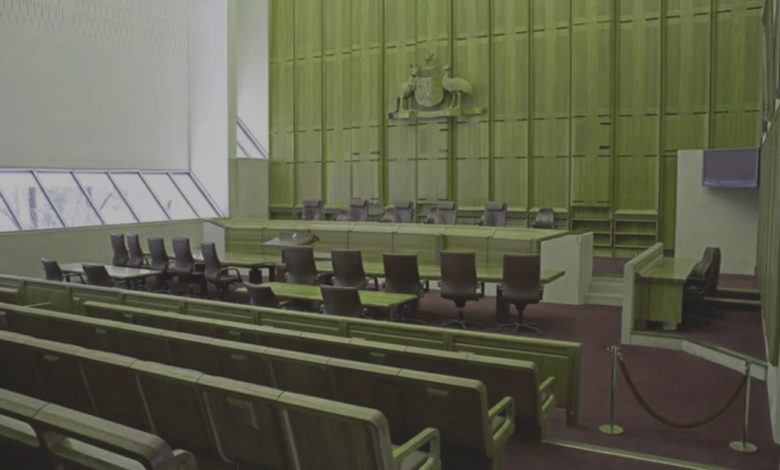
Navigating the Legal System in Wales: A Step-by-Step Guide
Navigating the legal system in Wales made simple Learn court procedures legal rights &support services in this essential Welsh law guide.
Navigating the legal system in Wales can be a complex process, particularly for those unfamiliar with its unique structure and procedures. As part of the United Kingdom, Wales shares many legal frameworks with England, but it also has distinct elements due to devolution and Welsh law. Understanding how the courts function, where to seek legal advice, and how laws are applied in Wales is essential for anyone dealing with legal matters whether personal, business-related, or criminal. This guide provides a clear, step-by-step overview to help individuals and professionals confidently engage with Wales’ legal system.
The Welsh legal landscape has evolved significantly since devolution, with the Senedd (Welsh Parliament) now holding legislative powers in key areas such as health, education, and housing. While major criminal and civil justice matters remain under UK jurisdiction, Wales has its own regulations in devolved sectors, making it crucial to understand where Welsh law differs from broader UK law. Whether you’re involved in a dispute, seeking legal representation, or simply looking to understand your rights, this will walk you through the key institutions, processes, and resources available to help you navigate the system effectively.
Navigating the Legal System in Wales
Understanding the Legal Structure in Wales
Wales shares its legal jurisdiction with England, forming the single legal system of England and Wales. However, since devolution, the Senedd has the authority to pass laws on devolved matters. The UK Parliament retains control over reserved matters such as defense, immigration, and policing.
The court system in Wales is hierarchical, beginning with magistrates’ courts for minor offenses and ascending to the Crown Court for serious criminal cases. Civil matters are handled by county courts, while the High Court and Court of Appeal address more complex disputes. The Supreme Court in London serves as the final appellate court for all UK cases.
Key Legal Institutions in Wales
Magistrates’ Courts
Deal with minor criminal cases, family proceedings, and some civil matters.
Crown Court
Handles serious criminal offenses, including trials by jury.
County Courts
Resolve civil disputes such as contract breaches, personal injury claims, and housing issues.
High Court
Divided into three divisions (Queen’s Bench, Chancery, and Family) to handle high-value civil cases and judicial reviews.
Court of Appeal
Reviews decisions from lower courts.
Supreme Court
The highest court in the UK, hearing appeals on significant legal issues.
Additionally, tribunals specialize in areas like employment, immigration, and social security disputes.
Legal Processes in Wales
Criminal Cases
If accused of a crime, the process typically begins in a magistrates’ court. Minor offenses may be resolved here, while serious crimes are referred to the Crown Court. Defendants have the right to legal representation, and if unable to afford a solicitor, they may qualify for legal aid.
Civil Disputes
Pre-Action Protocol and Alternative Dispute Resolution (ADR)
Before filing a formal claim, parties in Wales are generally expected to follow pre-action protocols, which involve exchanging information and attempting negotiation or mediation. The courts encourage Alternative Dispute Resolution (ADR), such as arbitration or conciliation, to resolve conflicts without litigation. Failing to consider ADR may result in cost penalties, even if a party wins the case.
Initiating a Claim in County Court
If ADR fails, the claimant (the person bringing the case) files a claim form (N1) in the County Court. The court then serves the claim to the defendant, who has 14 days to respond—either admitting liability, disputing the claim, or making a counterclaim. Small claims (under £10,000) follow a simplified process, while larger or more complex disputes may be escalated to the High Court.
Case Management and Court Proceedings
Once a defense is filed, the court sets directions, including deadlines for evidence disclosure, witness statements, and expert reports. Many cases are resolved at this stage through settlement. If not, the court schedules a hearing where both sides present arguments, call witnesses, and submit evidence before a judge makes a binding decision.
Enforcement of Judgments
If the court rules in favor of the claimant but the defendant refuses to comply (e.g., by not paying damages), enforcement action may be necessary. Options include wage deductions, property seizure (through bailiffs), or freezing bank accounts. The claimant must apply for an enforcement order and may incur additional fees.
Appeals Process
A party dissatisfied with the verdict can appeal to a higher court, but only on grounds of legal error or procedural unfairness not simply because they disagree with the outcome. Permission to appeal must be granted, usually by the trial judge or the appellate court. Strict time limits (typically 21 days) apply, and further appeals may proceed to the Court of Appeal or Supreme Court in significant cases.
Family Law Matters
Family courts handle divorce, child custody, and domestic violence cases. The Legal System is on mediation to reduce adversarial proceedings.
Devolved Laws and Welsh Legislation
The Senedd enacts laws in devolved areas, resulting in differences between Welsh and English regulations. For example, housing and education policies in Wales may follow distinct Legal System. It’s essential to consult Welsh-specific legal resources when dealing with devolved matters.
Accessing Legal Support
Legal Aid and Financial Eligibility
Legal aid in Wales is available for individuals who meet strict financial criteria, which assess income, savings, and the merits of the case. It covers various legal matters, including Legal System, housing disputes, and some immigration cases. The Legal Aid Agency (LAA) administers the system, and applicants must work with a solicitor who holds a legal aid contract.
Free and Low-Cost Legal Services
For those who don’t qualify for legal aid, alternative options include pro bono (free) services offered by law firms, university legal clinics, and charities like Legal System and Shelter Cymru. All practicing solicitors and barristers in Wales must be registered with the Law Society of England and Wales or the Bar Council, ensuring professional standards are met. These services provide crucial support for navigating the legal system affordably.
Read More: 🏥 Medical Negligence & Wrongful Death: When to Take Legal Action
Conclusion
Navigating the legal system in Wales may seem daunting at first, but with the right knowledge and resources, individuals can confidently engage with its processes and institutions. Whether dealing with civil disputes, criminal matters, or family law issues, understanding the structure of Welsh courts, legal rights, and available support services is crucial. By following Legal System outlined in this guide from identifying the appropriate court to seeking Legal System can approach your legal matter with greater clarity and assurance.
Ultimately, Wales’ legal system, while sharing many features with England, has its own nuances shaped by devolution and Welsh law. The key to successfully navigating the legal system in Wales lies in being well-informed, proactive, and willing to seek professional guidance when needed. Whether you’re resolving a contractual dispute, facing criminal charges, or handling family matters, knowing your rights and the proper procedures will help ensure fair treatment under the law. With this guide as a roadmap, you can move forward with confidence in pursuing justice within Wales’ legal framework.
FAQs
How does Welsh law differ from English law?
Welsh law applies to devolved areas like health and education, while England follows separate regulations. Some laws are England-and-Wales-wide.
What should I do if I cannot afford a solicitor?
You may qualify for legal aid or seek free advice from organizations like Citizens Advice Cymru.
Which court handles serious criminal cases in Wales?
The Crown Court deals with indictable offenses, such as robbery or murder.
Can I appeal a court decision in Wales?
Yes, appeals go to the Court of Appeal and, if necessary, the UK Supreme Court.
Where can I find Welsh-specific legal resources?
The Senedd website and Legal Wales provide up-to-date information on Welsh legislation.







